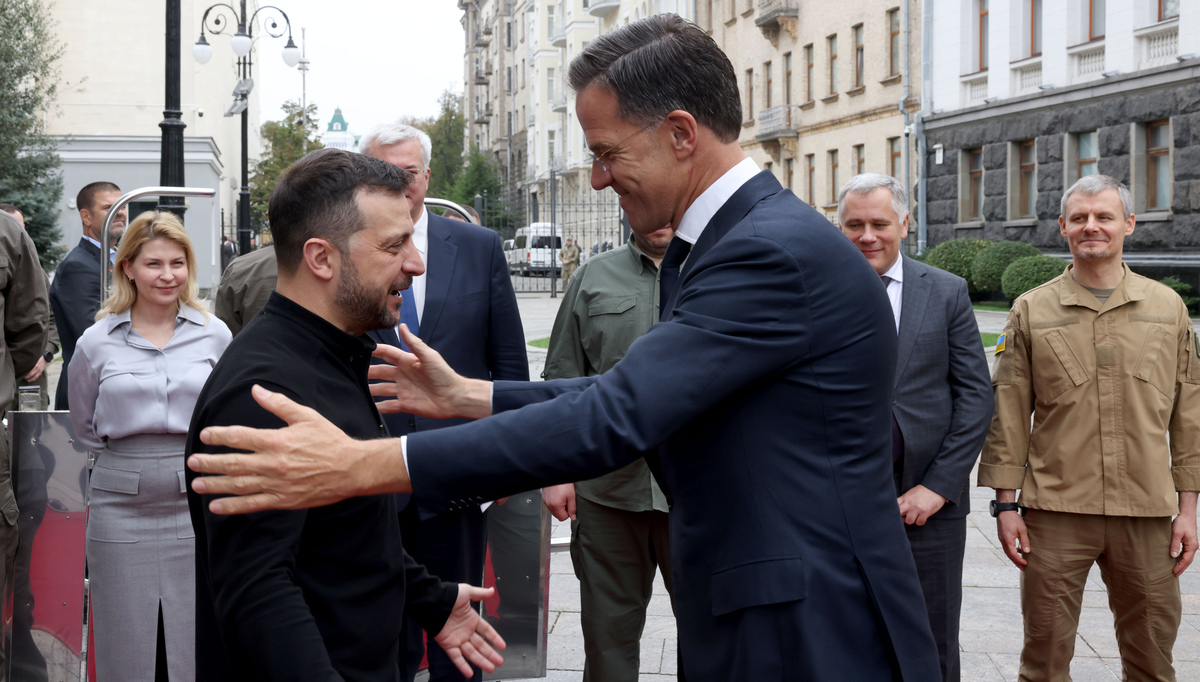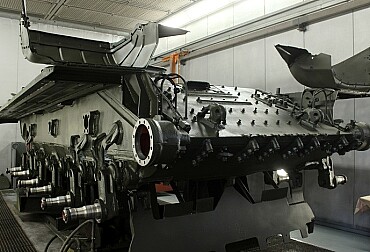New NATO Secretary-General Mark Rutte visited Ukraine. He aims to build on Stoltenberg's support for the country
Shortly after assuming office, new North Atlantic Treaty Organization (NATO) Secretary General Mark Rutte assured Ukraine's allies of NATO's continued commitment to supporting the country under Russian occupation. He made this commitment in person in Kyiv just two days after his appointment. Rutte seeks to build on the work of his predecessor, Jens Stoltenberg, whose mandate was extended due to the ongoing war in Ukraine. Alliance partners expect Rutte, the former Dutch Prime Minister, to maintain continuity not only in supporting Ukraine's defenders but also in respecting the minimum 2% of GDP for defense and keeping the U.S. involved in European security.

Rutte wasted no time in his new role. Following his appointment on October 1, he embarked on his third working trip to Ukraine. He personally assured President Volodymyr Zelensky of his continued support and expressed optimism about Ukraine's potential NATO membership. "We have been together in Odesa, Kharkiv, and several times here in Kyiv. Now, as NATO Secretary General, I am visiting Ukraine for the first time, and it was important to come at the beginning of my mandate to tell you, the people of Ukraine, and all those watching, that NATO stands firmly behind Ukraine," Rutte said at a conference in Kyiv, addressing both Ukraine and Moscow. He emphasized that it is his priority and privilege to advance this support so that NATO allies can help Ukraine secure victory against Russia. "Ukraine is closer to NATO than ever before and will continue on this path until it becomes a member of our Alliance. I look forward to that day," Rutte added.
Rutte acknowledged the urgency of Ukraine's requests and highlighted specific parts of ongoing and future assistance. These include the NATO headquarters currently being set up in Wiesbaden, Germany, to coordinate assistance and training for Ukrainian soldiers. The headquarters, expected to be operational in September, will include around 700 mission members, including soldiers from the Czech Republic, under U.S. leadership. Rutte also noted the allies' financial commitment of 40 billion euros, which Ukraine will receive within a year, with the aid system being reassessed annually.
During a joint appearance, President Zelensky reiterated his desire for allies to intercept Russian missiles and drones attacking Ukrainian cities, similar to NATO’s assistance to Israel against missile attacks from Iran. "We are cooperating with them, but at the moment they are not ready for that," Zelensky told Reuters, while also renewing his plea for medium- and long-range missiles to strike deeper into Russian territory. The allies have yet to reach a decision on this. "Without long-range weapons, we cannot stop Russia, which is using these weapons against us and destroying everything," Zelensky emphasized, urging quicker decisions from NATO. He will present his victory plan at a meeting with allies at the Ramstein Air Base in Germany.
Before taking on the role of NATO Secretary General, the 57-year-old Rutte had already been a vocal European supporter of Ukraine. As Dutch Prime Minister, he was among the first to approve the transfer of F-16 fighter jets to Ukraine. Given his first public appearance in office, NATO officials and diplomats expect Rutte to uphold the priorities of his predecessor, including engagement with the U.S. as its strongest partner. This is particularly important ahead of the U.S. presidential election. While Democratic Vice President Kamala Harris is expected to continue her support for Ukraine and NATO, Republican candidate and former President Donald Trump has expressed ambivalence about the conflict and the Alliance, having previously threatened to cut off support to European partners that do not meet the 2% GDP defense spending requirement. Despite Russian aggression, 23 out of 32 NATO members, including the Czech Republic, are expected to meet or exceed the defense spending threshold this year, according to Alliance data. In 2014, only three countries met the requirement. This year, total contributions from member states exceed $430 billion, or nearly CZK 10 trillion. To ensure efficient use of these funds and maintain momentum in deploying advanced capabilities, NATO members have agreed to allocate 20% of the total for acquiring major new equipment, including research and development.
Former Norwegian Prime Minister Jens Stoltenberg, eight years older than his successor, has led NATO since 2014. His mandate has been extended three times—partly due to a lack of suitable candidates and the Russian invasion of Ukraine, most recently last year. Under Stoltenberg's leadership, the Alliance has grown more cohesive, adding four new members—Montenegro, North Macedonia, Finland, and Sweden—the largest expansion since 2004. "NATO is bigger, stronger, and more united than ever, thanks in large part to your leadership," Rutte said, thanking Stoltenberg during a ceremony in Brussels. At the event, he presented his predecessor with a historic Viking hammer from Iceland as a symbol of NATO leadership. "I will keep my promise—I'm leaving Brussels in a few hours," the outgoing Secretary General joked. "Now, Mark, it’s up to you! You know NATO well, and the Alliance knows you well. You have the perfect background and experience to be a great Secretary General of NATO," Stoltenberg concluded confidently.







